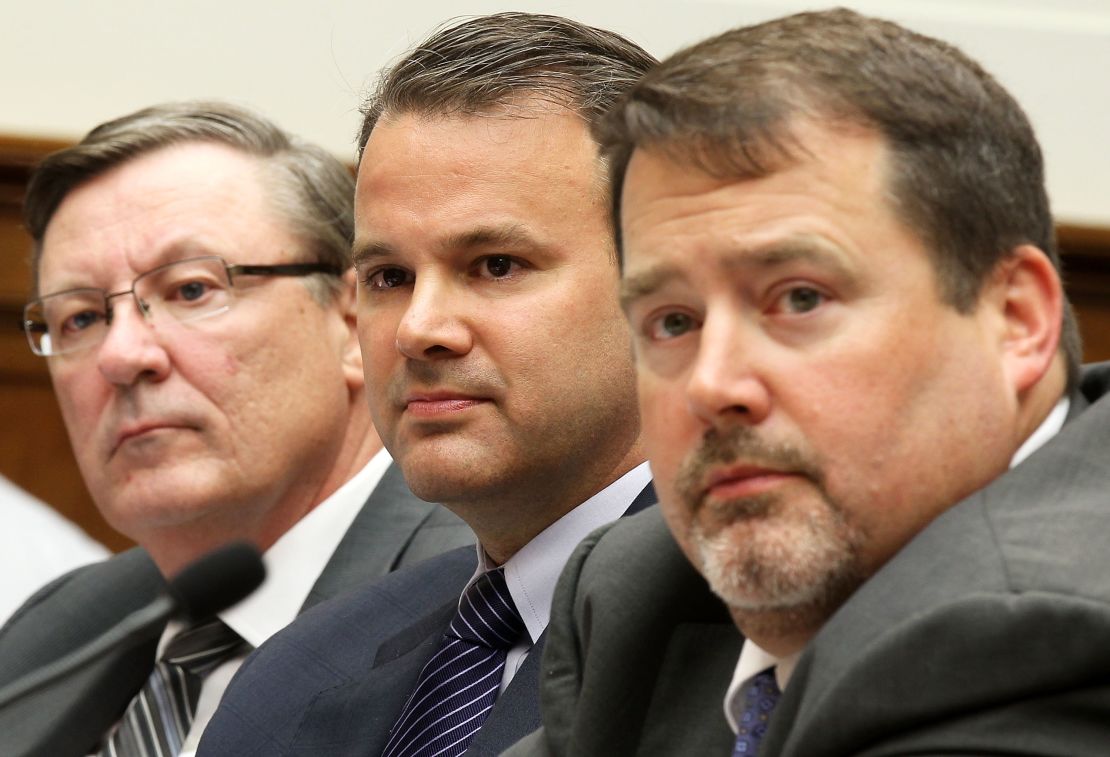Editor’s Note: Alexander J. Pourbaix is executive vice president and president of development at TransCanada Corp., the operator behind the Keystone XL oil pipeline.
Story highlights
Alexander Pourbaix says opponents are wrong on Keystone XL pipeline
He says contrary to what opponents say, "not a drop" of Keystone oil will be exported
Pourbaix: State Department study has debunked concerns over environment and market
He says during transition to new energy sources, U.S. should get its oil from a trusted nation
Opposition to the Keystone XL pipeline, which would move crude oil from the Alberta oil sands in Canada to refineries on the Gulf Coast if approved by President Barack Obama, has long relied on questionable information about our project and the Canadian oil sands.
A CNN op-ed by Tom Steyer has made some claims that need to be disputed. He and other opponents insist oil transported by Keystone XL is destined for export. Nothing could be further from the truth.
The reality, as TransCanada Corp. CEO Russ Girling has said, is not a drop of the oil transported through Keystone would be exported – period.

When he was asked at a news conference whether Keystone oil would be exported, Girling said: “Not a chance. Not in my lifetime. I have talked to every one of our customers, both producers and refiners, I’ve asked them the question again: ‘Do you have any intent of shipping any of this crude oil offshore?’ And the answer is absolutely not.”
Opponents also say the pipeline is not safe for the environment, but the undeniable reality is the science demonstrating Keystone XL is a safe and environmentally responsible project.
The State Department’s final supplemental environmental impact statement is a culmination of more than five years and contains 20,000 pages of analysis, with input from more than two dozen state and federal agencies. The environmental and market issues have been exhaustively reviewed and concerns debunked.
The impact statement explicitly states that building Keystone XL is unlikely to significantly impact the rate of extraction in the oil sands based on expected oil prices, oil-sands supply costs, transport costs and supply-demand scenarios.
Nor will Keystone XL affect “the continued demand for heavy crude oil at refineries in the United States …” And when it comes to producing heavy crude, the State Department impact statement recognizes that only oil sands production trends downward on carbon intensity.
Canada emits just 2% of global greenhouse gases, and the emissions from oil sands contribute 0.16% to global emissions. For context, three coal-fired power plants in the United States emit more greenhouse gases than the entire oil sands industry.
With regard to rail, the impact statement was abundantly clear that the expansion of rail facilities will be able to transport the capacity of Keystone XL and then some. Nearly 1.2 million barrels per day of rail loading capacity, about 1.5 times the size of Keystone XL, will be available to move Canadian crude oil to markets by the end of 2015.
The latest U.S. Energy Information Agency energy forecast shows the United States will import millions of barrels of oil for decades during its transition to a lower carbon future. The responsible thing to do for the environment, the economy and the public is to build the safest, most efficient infrastructure to transport it.
At TransCanada, we’re investing billions of dollars in renewable and emission-less energy sources in North America, including wind, solar, hydro and nuclear power to bring clean energy to millions of homes across the continent. We’re also focused on upgrading U.S. energy infrastructure so that during the transition, the United States can get more of its oil from a trusted ally: Canada.
That’s the responsible path forward and why Keystone XL continues to enjoy strong public, congressional, labor and business support – and why this project continues to be in the United States’ national interest.
We urge Obama to give a green light to the Keystone.
Follow us on Twitter @CNNOpinion.
Join us on Facebook/CNNOpinion.
The opinions expressed in this commentary are solely those of Alexander J. Pourbaix.



